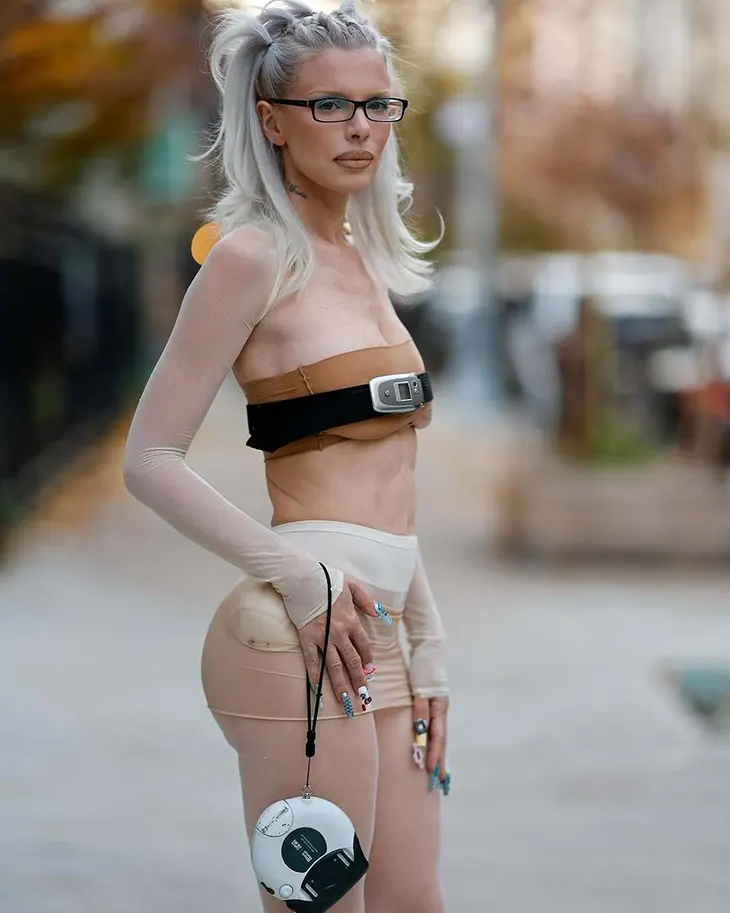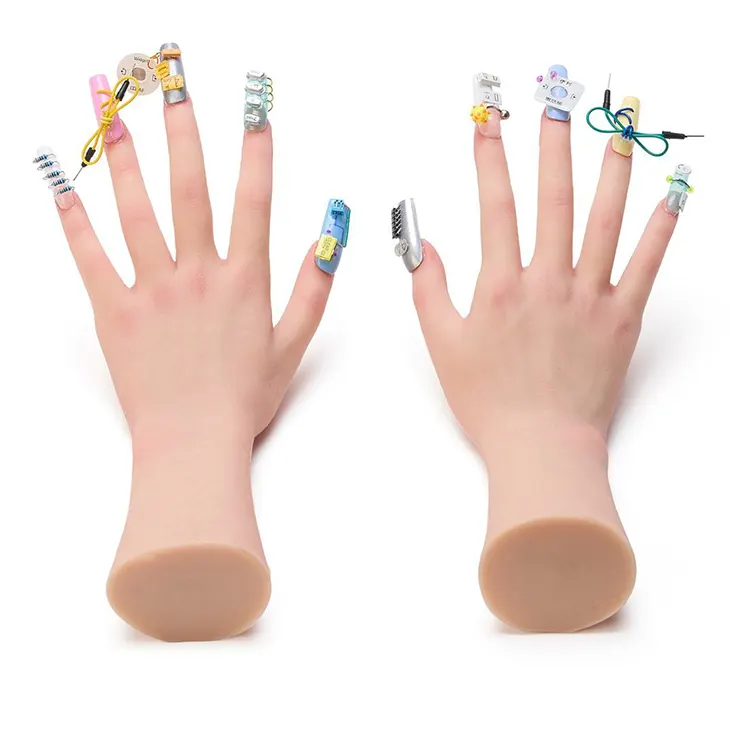
Julia Fox has had a significant impact on the fashion industry in recent years, from her unapologetic street style to her intentional paparazzi shots. She’s used her platform to support young talent, as seen in her show OMG Fashun, and has made her stance on fast fashion clear, advocating for a more eco-conscious approach. In her latest venture, Fox collaborated with artist Gab Bois and refurbished tech site Back Market to launch a luxury collection that challenges the current fashion and tech trends, specifically highlighting the e-waste crisis and the detrimental cycle of fast fashion.
FASHION
The collection, which debuted in December 2024, features six upcycled pieces that incorporate nostalgic Y2K technology, turning outdated electronics into wearable art. Bois’ work draws attention to the massive e-waste problem, with millions of tons of non-recycled electronic waste ending up in landfills each year. If not properly recycled, e-waste can release harmful toxins into the environment, from air pollution to soil contamination, all of which have dire effects on both ecosystems and human health.

While the collection is certainly a bold statement about sustainability, it also raises important questions about the cyclical nature of consumerism. By incorporating recycled tech into fashion, the project pushes for a deeper reflection on the excesses of both fast fashion and fast technology. However, there is an inherent irony in this luxury collection, which, despite being made from upcycled materials, remains priced out of reach for the average consumer. This reflects the larger problem in the sustainability conversation, eco-friendly practices, like upcycling, are often marketed as solutions, but they are inaccessible to many people due to the high cost.
View this post on Instagram
The problem isn’t just about throwing away old clothes or gadgets, it’s about the infrastructure designed to prevent us from fixing or maintaining them. Technology and fashion industries thrive on creating products that become obsolete so quickly that they force consumers to keep purchasing. Manufacturers intentionally make repairs difficult or impossible, leading to an explosion of waste.

Despite the efforts of artists like Gab Bois, the question remains: are we truly ready to make a change in our consumption habits? It’s easy to praise recycled tech fashion when it’s a statement piece, but the true challenge lies in shifting the mindset of mass consumers who still cling to the cycle of perpetual upgrades. In the long run, will we see this project as a temporary trend or as part of a more sustainable future for fashion and tech? The answer depends not only on whether we embrace innovations like these but on how willing we are to challenge the root causes of our consumption-driven society. I can definitely imagine fast fashion brands copying this collection, but that only adds to the larger issue of unsustainable consumerism.

The creation of luxury items from e-waste is an example of innovation that forces us to reconsider what we define as “waste.” Yet, this doesn’t mean we’ve solved the underlying issues at play.




















i love julia 😍